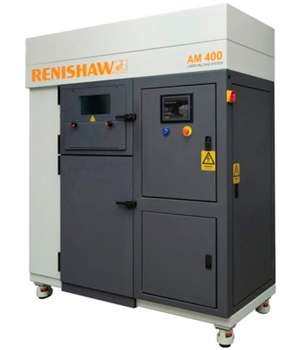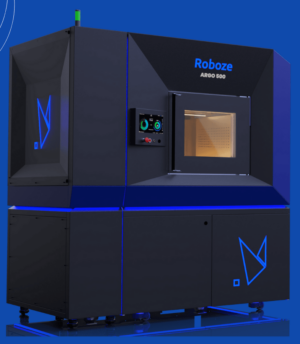
UD-CCM is expanding its capabilities to include a focus on additive manufacturing, building on our history of additive processes for composite manufacturing. In this, the Center has established a world-class facility that combines state-of-the-art multimaterial, polymer, metals, and ceramic Additive Manufacturing systems along with equipment for synthesizing and characterizing new functional materials.
Multimaterial Additive Manufacturing Equipment
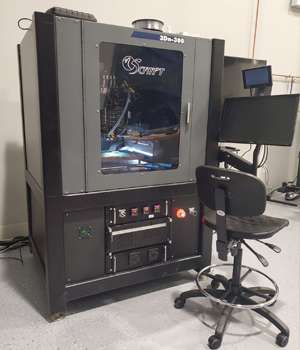 |
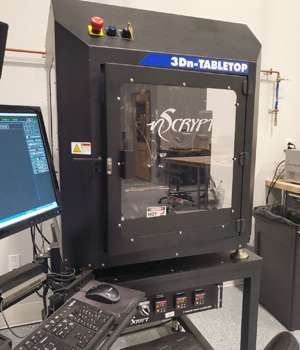 |
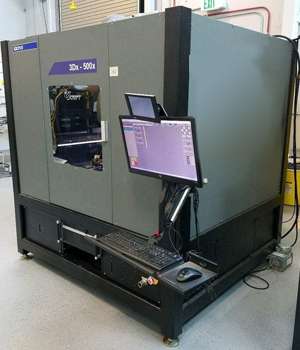 |
nScrypt Tabletop
|
nScrypt 3Dn 300 system
|
nScrypt SuperScrypt system
|
Metal Additive Manufacturing Equipment
More Equipment
Fused Filament Fabrication: Multiple systems (12+), from benchtop to industrial scale, with the ability to rapidly prototype three dimensional structures with basic commodity materials to novel high temperature engineering thermoplastics.
Selective Laser Sintering: Sharebot SnowWhite system. 100mm x 100mm x 100mm build volume with a 14W CO2 laser and rapid (3500 mm/s) scanning speed. Allows for sintering of thermoplastic powders into three dimensional structure, including high-temp, engineering, and flexible thermoplastic materials.
Powder Drop-on-Demand: Unique system to the University of Delaware. 750mm x 750mm x 100mm build volume. Functional powders are deposited in precise locations on the substrate. Typically used to deposit powders into conventional fiber reinforced composites structures to add RF functionality.
Ultrasonic Additive Manufacturing: Fabrisonic benchtop system. 100mm x 100mm x 100mm build volume. Ultrasonic AM (UAM) is a process that allows for the merging of layers of metal drawn from featureless foil feedstock. The process provides true metallurgical bonds with full density and works with a variety of metals. The process also allows for bonding of multiple metals in a single build.
Tri-Head Multi-Material Printing: Hyrel 3D 30M system. 200mm x 200mm x 200mm build volume with belt-belt-ballscrew positioning. Allows for rapid experimentation of novel feedstocks and new processing heads before incorporating these capabilities with other systems.
Digital Light Synthesis: Carbon M2 Printer. 190mm x 120mm x 330mm build volume similar to Digital Light Projection Stereolithography. Enabled by Carbon’s CLIP process, the M2 printer uses digital light projection, oxygen permeable optics, and programmable liquid resins to produce parts with excellent resolution and surface finish.
6-Axis Multi-Material Printing: nScrypt SuperScrypt system. 700mm x 700mm x 500mm build volume with precision ball screw motion platform. Ability to print thermoplastic or thermoset structure in combination with printed circuitry. 5-Axis tool changing head allows for unique combinations of additive, subtractive and composite fabrication. A redundant rotational build plate adds the 6th axis. This system will allow operation with commercial and prototype tool heads.
High Temperature Fused Filament Fabrication: Roboze Argo 500. 500mm x 500mm x 500mm build volume with heated build plate and heated chamber. The processing temperature of this dual head system can reach 500C. This combination of processing parameters allows for printing a broad range of high temperature thermoplastic and composite materials.





